Politics
Bihar 2015: The Tipping Point For Congress?
Bodhisatvaa and Aashish Chandorkar
Sep 28, 2015, 10:26 PM | Updated Feb 11, 2016, 09:05 AM IST
Save & read from anywhere!
Bookmark stories for easy access on any device or the Swarajya app.
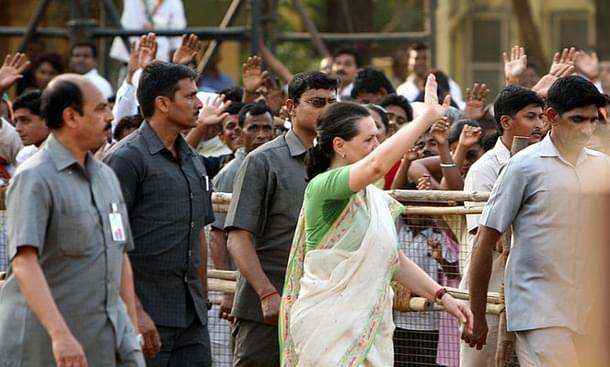
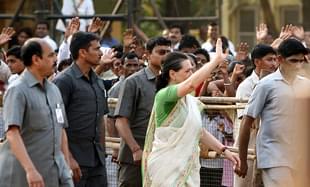
While TV anchors and Twitter warriors continue to debate where Rahul Gandhi is, the real issue the Congress party is grappling with is being ignored.
In the upcoming battle of Buxar, even though it is Narendra Modi versus the local satraps, the stakes are perhaps the highest for Rahul Gandhi and his band of merry Congressmen. Despite Congress being largely a non entity in the state it dominated just 25 years back, the Bihar election may well define the future, or the lack of it, for the party. A loss in Bihar for Congress’ alliance with Lalu Yadav and Nitish Kumar will not only be another election defeat, but may just ignite several small rebellions, which have slowly started erupting in the party post the 2014 election defeat.
The phoenix always rises from the ashes
After the 2014 general elections where it managed a paltry 19.5% of the total votes polled, Congress leaders have been publicly putting up a brave face stating that the party has the resilience to bounce back. This claim rests on historical evidence, where Congress did rise from difficult situations in the past.
When Indira Gandhi faced a rebellion in the party ranks in the late 60s, she simply engineered a split and her faction continued to be accepted as the ‘legitimate Congress’. Post the Emergency, Congress lost power in 1977, but sprung back doubly strong in 1980 with 42.7% of the votes polled. When for a brief interregnum the first family lost control of the party in 1991, it appeared that various local state factions would drive the party. However, PV Narasimha Rao tactfully ran the government for a full term. By 1998, Sonia Gandhi was back at the helm of the party and all the factions more or less came together again over time. The party did lose Delhi for a while, but then bounced back t0 control the country for 10 years. And then came 2014.
Carmen Reinhart and Kenneth Rogoff wrote a seminal book in 2009 titled ‘This Time Is Different’. The book explained how central bankers, policy makers, politicians and indeed corporate beneficiaries always explain every asset bubble and the subsequent crash as a different event, uncorrelated with anything else in history. In making these assertions, the lessons from the past are often lost or willfully ignored to satisfy the ‘difference hypothesis.‘
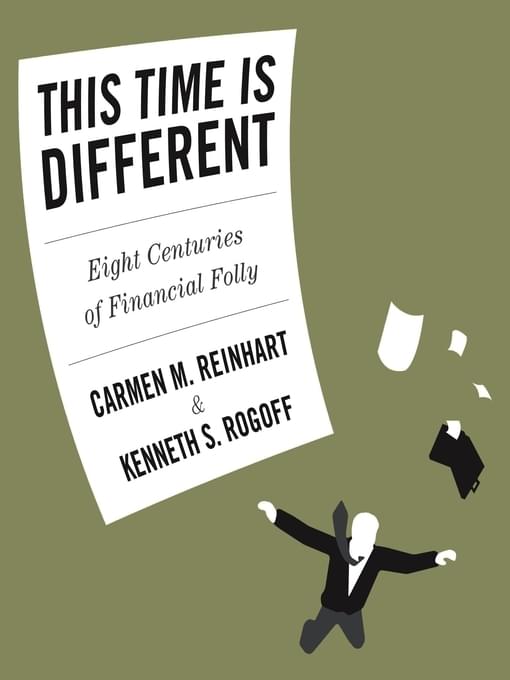
Congress has always worked with a ‘This Time Is Same’ hypothesis since the late 60s and the party has indeed been proven right every single time. The introspection which goes in every periodic setback results in no course correction and no lessons learnt. Sewing up a social coalition of poor, marginalized and disadvantaged, dressed up with the colours of secularism adjusted to the need of each state, and propping up a leader with the Gandhi surname has been a foolproof formula. This time, however, may well turn out to be different.
Lack of regional strongmen
There are a few things different for Congress—post May 2014—compared to previous low points. As Arun Shourie has often recounted the quip from Gyani Jail Singh ‘India mein do tarah ke leaders hain, state leaders like Kamraj, SK Patil or dooje stateless leaders like VP Singh’. While Dr. Shourie has often used this quote for the Bhartiya Janata Party (BJP), the same applies for Congress equally well today. The stateless leaders, who have often ignored the nitty gritty of state politics for the cosy confines of Lutyens Delhi today form most of the vocal space within the party.
There are hardly any leaders who can carry a state on their own for the party. The ones who had a relatively better reputation are being sidelined by the Rahul Gandhi controlled dispensation in favour of names which don’t seem to be working. The party has chosen Arun Yadav in Madhya Pradesh over Jyotiraditya Scindia, Ashok Tanwar in Haryana over Bhupinder Singh Hooda, Ashok Chavan in Maharashtra over Prithviraj Chavan and Partap Singh Bajwa in Punjab over Captain Amrinder Singh. The only state where there seems to be a revival of sorts for the party is Rajasthan, where Sachin Pilot, chosen over Ashok Gehlot seems to be mounting a stiff resistance.
The urban base of Congress has dwindled dramatically in the last couple of years. In the 2014 general elections, thethree largest cities that Congress held on to were Amritsar (34th by population), Jalandhar (58th) and Ludhiana (22nd). In terms of the states where Congress rules, thetop three states are Karnataka (8th), Kerala (13th) and Assam (15th). Staying out of power in centres like Maharashtra, Haryana, Delhi and Uttar Pradesh also hurts the chances of party’s finances getting bolstered.
The warning signs are there. A loss in Bihar will be another sign that the congress’s revival plans only remain a work in progress. Congress vote share has consistently declined in Bihar, from almost 40% in 1985 to 8.6% in the 2014 general elections, and it is consistently 4th in the state on a vote share basis. The defeat will likely be followed by inaction, as it has been the case in previous defeats.
After-effects of Bihar loss
There are three key areas where the Congress leadership is likely to face a challenge in the event of National Democratic Alliance (NDA) winning the Bihar election.
State leaders will ask for a greater autonomy: In his recent prophetic interview, Captain Amrinder Singh almost held up a mirror to the Congress leadership, asking for more autonomy. The loss of Hemanta Biswa Sarma in Assam almost ensures a Congress loss in Assam in 2016, a state it has won for three consecutive terms. Similar small rebellions can also start in Chhatisgarh, Karnataka, and Haryana. In Karnataka, CM Siddaramaiah has already been under pressure and murmurs of his imminent sacking may gather steam.
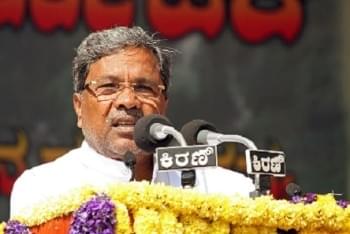
Historically speaking, when Congress splits on the state level, the breakaway faction typically tends to usurp a considerable chunk of the party’s base at the state level. Sharad Pawar, Mamata Banerjee, and Jagan Mohan Reddy are good examples of state leaders, who, on being given a raw deal from the Congress high command have successfully chartered their own course. While some of these parties have tied up with the Congress as well, they have mostly done so on their own terms.
Full electoral cycle without significant wins: Since the Karnataka elections in 2013, Congress has lost every significant election. Any potential breakdown in state units is important as the party then runs a risk of going through a full electoral cycle (2013-2018) without any credible wins. Amongst the governments currently run by the NDA, Punjab is perhaps the most unpopular, and the most likely candidate to lose its mandate in 2017. However if Captain Singh decides to break away, it will significantly hurt Congress chance of clinching the state back. 2016 is likely to be poor year for the party electorally.
As it looks to defend Kerala and Assam, and may well end up losing both. Congress is already irrelevant in West Bengal and Tamil Nadu. In 2017, Congress will be irrelevant in Uttar Pradesh and may well lose Himachal Pradesh and Uttarakhand. Winning back Goa and Gujarat may prove difficult too. So if Punjab slips away, the net losses for Congress would mount steeply in the run up to the 2018 state and 2019 general elections. Every successive loss can have a domino effect in terms of state units acting pricier – especially because a few individuals like Captain Amrinder Singh, Jyotiradiya Scindia, Deepinder Singh Hooda and Ashok Gehlot stand a better chance of making a local impact without Congress rather than with it.
Rajya Sabha seats: While Congress enjoys a sizeable lead in Rajya Sabha for now, its numbers are going to start dwindling from 2016 onwards. In 2016, Congress will have 19 MPs up for re-election in the Rajya Sabha. Out of these 19, an estimated 13 (2 Assam, 2 Andhra Pradesh, 1 Chhatisgarh, 1 Tamil Nadu, 1 Madhya Pradesh, 2 Rajasthan, 2 Maharashtra, 1 Uttar Pradesh and 1 Jharkhand) will not be re-elected.
To compound the problems, the ones not likely to be elected include vocal and influential names like Jairam Ramesh, Mohsina Kidwai, Vijaylaxmi Sadho, Anand Sharma, Vijay Darda, and Satish Sharma. Not only will Congress suddenly find itself short of voice in the upper house, it will also attempt to seek re-election for these important names from other states, further antagonising the state cadre. The party is already finding it tough to reward state leaders – closing the doors to the upper house may lead to more state specific rebellion.
If Congress is unable to ensure a loss for BJP in Bihar, it may pave the way for Congress to go through an entire election cycle without winning a state back from the BJP. It would then need to do something spectacular in 2018 to stay relevant. Such a washout will be compounded by growth in Aam Aadmi Party (AAP).AAP can emerge as the natural challenger to BJP in many states, only if it can get its alliances and local faces right.
If Mahagathbandhan wins Bihar
If the Janata Dal United, Rashtriya Janata Dal and Congress Mahagathbandhan wins Bihar, it will mean a second successive defeat for the BJP post Delhi. This will embolden the Congress, and despite not getting its house in order, the party can influence its dissidents and a few allies to come together attempting to corner the central government.
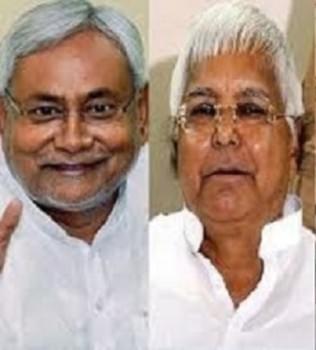
To that extent, while the Mahagathbandhan win will keep Nitish Kumar and Lalu Yadav and his family relevant in Indian politics, the biggest gainer may well be Rahul Gandhi. Even as Congress may stages a less than strong recovery, it does not necessarily mean that the support for BJP will not go down. A repeat of its 2014 election performance is unlikely, and it needs to prepare the ground for running a larger coalition in 2019. The domino effect of a Bihar win for the opportunistic alliance will be big for Congress.
As for now, the Gandhis and the party, cannot do much more than wait for the Bihar election results with a bated breath. An election where the party may not win more than a handful of seats will most certainly decide its future. After the financial crisis of last decade, the commodities trading expert Morgan Downey had quipped: It’s a crisis if everybody calls it a crisis. An NDA win in Bihar will result in more Congressmen calling it a crisis for the party and telling the Gandhis – this time it is different.





